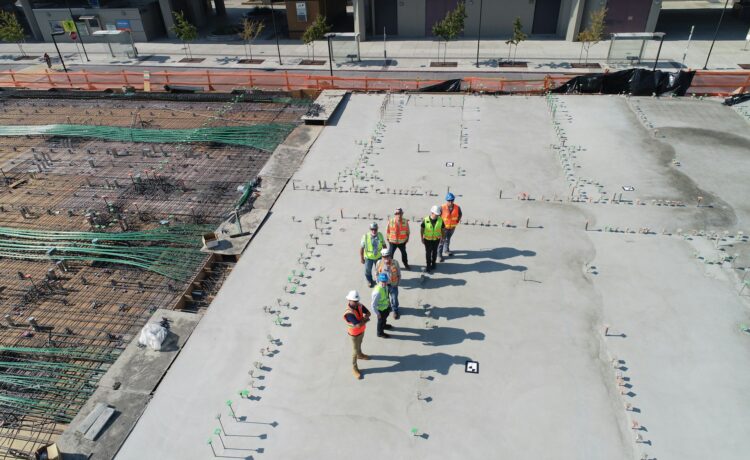The construction projects can at the same time be interesting and challenging. Whether you are just starting the construction of a house, redesigning your house, or planning a commercial project, the risks are great. The idea of having your project implemented is exciting, but it also has its own set of troubles.
In many cases, people have no idea the level of planning that goes into these types of initiatives. Construction project is a complex process and it needs proper planning and logistically from the beginning till the end. Nevertheless, it is important to mention that errors can be made at practically any phase of the operation. When they do, they can lead to many expensive and frustrating delays.
It is crucial to know some issues that cause a project to fail in the construction business. If these errors are identified at an early stage, this then means that you can avoid them and continue with your project. It is now time to move to a more detailed look at what actually does happen wrong in construction projects so that you can avoid them – here are some key areas to consider:
The Importance of Planning in Construction
Preparation is one of the crucial elements in the achievement of any construction project. Its provides the framework on which all subsequent activities are built including budgeting and timing horizons. It is due to this that they said that every undertaking should be planned; failure to which the projects may gather issues and concerns.
Strategic planning is about goal setting on what to accomplish, mapping on who is to do what and when, and how. It also clears most of the fog that can confuse a team and in general, good definition avoids confusions.
This means that the party should take its time to evaluate risks it could possibly face. It is possible to counter emergent challenges once they are identified as to why teams work to develop means of avoiding their occurrence. It prevents time-consuming routines and procedures that would have otherwise cost a lot of money in the future.
It also enhances every communication that is obviously needed among all the stakeholders. The best time is when all in the team are aware of their roles and required time to complete certain tasks.
From this we can see that thorough planning enables projects to not only be delivered to meet the requirements of the clients but also enables the projects to be delivered efficiently as well. The effort invested in this stage gives a good return when or if the time for execution comes.
Common Mistakes in Project Planning
Project planning is the fundamental part of any construction project. However, most teams fall at this stage, which is important in the entire process.
There is one major error present that is the lack of an adequate scope. Since work destinations are not well defined, projects can veer off or grow out of control, to the detriment of the business.
The second common mistake is in setting impractical time frames. Forcing a process usually negates someone’s hard work and results in poor quality.
It is also very dangerous if not all the stakeholders are involved during planning for later on there will be problems. Feedback is received from contractors, suppliers, and the clients, meaning everyone is on the same page from the very beginning.
The same is true for failing to anticipate risks as this can slow down the proceedings massively. Dealing with certain problems in advance also means that one will be ready to face them throughout the course of developments.
Solving these issues from the onset lays a better groundwork for any construction venture visit: https://www.grimmond.com.au/
.
Communication and Collaboration Errors
In construction projects, communication plays a major role in the development of a project. There are several problems one encounters when some or all team members do not disclose some information. Through misunderstandings, one is in a position of delaying as well as incurring costs.
Another important place is the collaboration that takes place in the process. The stakeholders’ information, such as the knowledge of the organisation, the customer needs and more are missed when operating in isolation. This absence of collaboration affects the outcome of the project.
The meetings should be more frequent in order to enable the individuals to come out and share ideas. However, when they assemble, they can turn into incapacitating forums if not properly conducted. Specific purposes are ways of maintaining a focus to the ongoing debate.
Modern tools can also improve collaboration efforts as well. About project management software, it enables teams to receive notifications and updates on the tasks and time of completion.
Early on, misunderstandings that occur are also set to be solved when everybody gets a fair chance to be heard. The issue here is that addressing the concerns when they are just emerging can eliminate future problems saving time and resources.
Budgeting and Cost Management Mistakes
Control of cost and budgeting is an essential part of any construction project. If these aspects are ignored it greatly so the outcome can be quite a catastrophic one. There is one that is recurrent and it is cutting cost underestimate. Project managers do not budget for contingencies such as a rise in material costs or lack of workforce as is experienced in this project. This omission often results in some form of fiscal pressure that threatens the very sustainability of the project.
One more area that is often being marred with mistakes is in the management of resources. This means that if one has no idea of how much money is needed for each phase, then it becomes very hard to balance financially a given project. Levelling may also be an issue where many funds have been committed early in a project but scarce later on, meaning that quality may be compromised.
This brings us to cost tracking which also deserves a lot of consideration. One way that you might find you are overspending is when you do not review your spending regularly. Some things require constant checks to ensure that they are going as planned. Reviewing should in fact be done at random.
There is nothing worse than having a very weak contingency plan in place so that when the unexpected happens, all teams are left unprepared. Commercial feasibility in terms of risk management means that setting aside an adequate reserve is a good strategy both for decentralised risk management and for the overall efficiency during the project management life cycle.
If such budgeting and cost management problems are resolved it not only ensures that projects are kept in the financial cord but other aspects of construction projects success milestones are attained.





